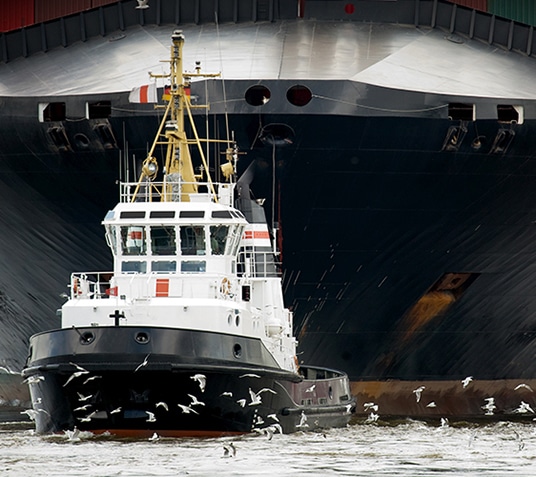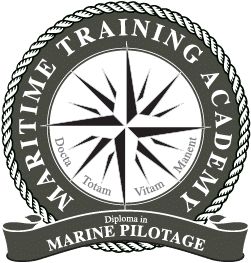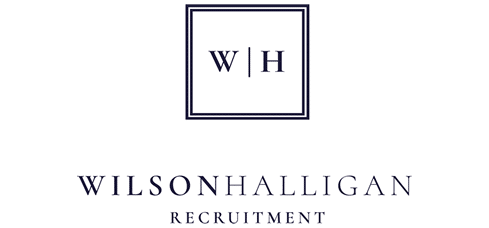Maritime Pilot Course
Become a Qualified Maritime Pilot
This course is for marine pilots and people working in related areas that wish to learn about this part of the marine industry. Ideal for the professional looking to update and consolidate their knowledge and the novice wishing to start a career.

Duration:
12 – 18 months

Modules:
10 in total

Cost:
Diploma: £3,195
Certificate: £2,295

Recognised by: 
Ship Navigation & Port Entry Training
This unique Diploma has been developed to educate those working the marine pilotage sector. With this course you will develop your skills and improve your knowledge of the industry. This course will give you a greater understanding of the role of the marine pilot and in turn will give you the skills necessary to build a successful career within this growing industry.
Module subjects include key topics such as the types of pilotage, ship handling and bridge management as well as other essential subjects such as pilotage law, port control and boarding emergencies.

Course Structure
The course consists of 10 modules. All students are required to successfully complete and pass the module assignments. Diploma students will also be required to sit and pass a final examination.
1. Introduction
- Introduction
- History of pilotage
- Types of pilotage
- Conduct of pilotage
- Legal framework – legislative and regulatory requirements
2. Pilotage Training and Techniques
- Pilot Training and Techniques
- Marine Experience
- Methodology
- Simulators
- BRM and BTM
- Cultural Awareness and Management
3. Pilotage Law
- Pilotage and Legal History
- Legal Concepts
- The Law of Contract
- The Law of Tort (Negligence)
- Liability in Contract and Tort
- Responsibilities
- Maritime Law
- The Flag State and Ownership
- The Pilotage Act 1987
- The Pilot
- Trinity House and Pilotage Associations
- The IMO and National Laws
- Pilot Boarding and Pilot Ladders
- Table of Cases
4. Canal and River Pilotage
- Canal Pilotage
- River Pilotage
5. Use of Tugs – The Pilots Perspective
- Types of Harbour Tugs
- Towing Equipment
- Tug Interaction and Associated Risks During Towage Operations
- Ship Design and Towage Equipment
- Manoeuvring with Tugs
- Escorting with Tugs
- Communications and Good Practice
6. Boarding and Leaving a Vessel
- Regulations in Respect of Pilotage Access and Egress
- Boarding and Leaving and Dockside
- Pilot Ladders
- Accommodation Ladders
- Alternative Boarding Arrangements
- Shell Side Doors
- Transition from Pilot Cutter to Ship
- Making a Lee
- Boarding Emergencies
7. Ship Handling
- Anchors and Anchorage
- Open and Closed Side Berths
- Wind, Tide and Weather
- Hulls Shapes and Pivot Points
- Thrusters
- Steam, Diesel, Electric and Nuclear Engines
- Squat and Vessel Interaction
- Article on Azipods
- Marine Guidance Note (MGN) 199 (M)
8. Sea and Offshore Pilotage
- Pilotage and Legal History
- Offshore Pilotage
- Pilotage Areas
- Pilotage and Special Operations
9. Master/Pilot Information Exchange
- The Pilots Role
- Communication
- The Bridge Card and Information
- Monitoring and Teamwork
10. Harbour and Dock Pilotage
- Pilot Exemption Certificates (PECs)
- Pilot Grading
- Local Knowledge
- Vessel Traffic Services (VTS) interface
- Tidal Windows
- Byelaws
- Competent and Statutory Harbour Authorities
- Other Water Users
Career Pathway
Career path:
Starting as a trainee pilot (often practical marine experience is also required), progressing through port-specific training and then progressing to larger vessels as experience is gained.
Salary:
£45-75K per annum.
Duties:
To provide local knowledge and expertise (Pilot’s advice) for ships entering and leaving harbour. This usually involves shift work.
Meet the Course Director
Captain Don Cockrill
MBE CMMar FNI
Following eighteen years of commercial seafaring Don joined the Port of London Authority as a pilot in 1991, from where he retired in December 2019 as a senior pilot.
Through most of his pilotage career he was involved with the United Kingdom Maritime Pilots’ Association including serving as both Chairman and Secretary General.
He remains passionate about the promotion of safety issues and the maintenance of the highest professional maritime and pilotage standards and has for a number of years been engaged in the CPD training of pilots and port management officials in Asia. Having written and contributed to numerous published papers over the years and presented at a wide variety of fora, his significant lifelong experience and associated expertise in maritime operations within the ports and shipping industries continues to be widely sought after.
Most recently that involves implications for port shipping navigation arising from the development of autonomous vessels (MASS) and also the inevitable effects of climate change on port operations.


DIPLOMA IN MARINE PILOTAGE
On passing the Diploma, you will receive the above icon. Please use it on your business cards, LinkedIn profile and website(s)!
You can also use these letters after your name: MTA Dip MPilot
Why Choose The Maritime Training Academy?

Flexible
Online learning allows you to study in your own time, at your own pace from anywhere in the world. This saves on travel and classroom costs and allows you to fit your studies around your job and progress your career.

Supportive
While the nature of distance learning is independent study, we recognise the importance of support. Students can contact us at any time during their course for assistance and our team of industry experts are always on hand for advice.

Expertise
We have over 50 industry experts writing, developing and advising on our course material. We truly believe that allowing students to tap into their expertise and knowledge is of the utmost importance to fulfil your dream career.
If you would prefer to complete this as a classroom-based course, please contact us.
FAQs
How long do the courses take to complete? What's the difference between a Diploma and a Certificate? Read through our Frequently Asked Questions below to find out the answer.
















